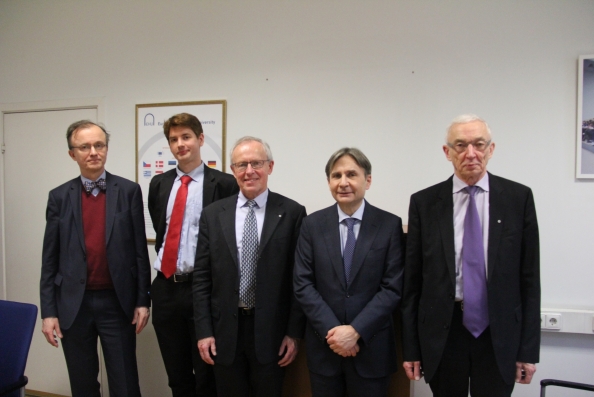EHU President and Acting Rector welcomed the Ambassador of Finland to Lithuania and Belarus H.E. Mr. Christer Michelsson, Ambassador of Norway to Lithuania H.E. Mr. Dag M. Halvorsen and Second Secretary of the Embassy of Sweden in Lithuania Mr. Samuel Persson.
EHU leadership and representatives of the Nordic countries discussed the current progress of EHU in terms of upgrading University’s management and planning processes, enhancing EHU internal operations and optimizing budgetary policy. EHU leadership expressed sincere gratitude to the enduring commitment of all Nordic countries to the mission of EHU and emphasized the key role of the Swedish International Development Cooperation Agency (SIDA) in the ongoing setting of the University’s progress, namely in the process of assessment of the University management systems, renewing membership of EHU Governing Board, and conducting the International EHU Rector selection process.
Ambassadors expressed interest in University’s integration into Lithuania’s network of higher education and closer ties with academic counterparts. They positively evaluated EHU’s innovative approach to educating liberal arts implemented through the Core Curriculum. EHU Acting Rector Jørgensen also presented the status of University’s preparations to the Donors Conference, taking place on April 19
According to President Prof. Mikhailov: “Long-term commitment of Nordic countries to support our University represents vital importance for the existence of our project. When it comes to assessment of the nature of transformations of post-totalitarian reality, “the case of Belarus” should be considered as a part of a wider region of the North-Eastern Europe. We are grateful to the Nordic countries for their consistency in supporting EHU since the very relocation of the University to Vilnius”.
